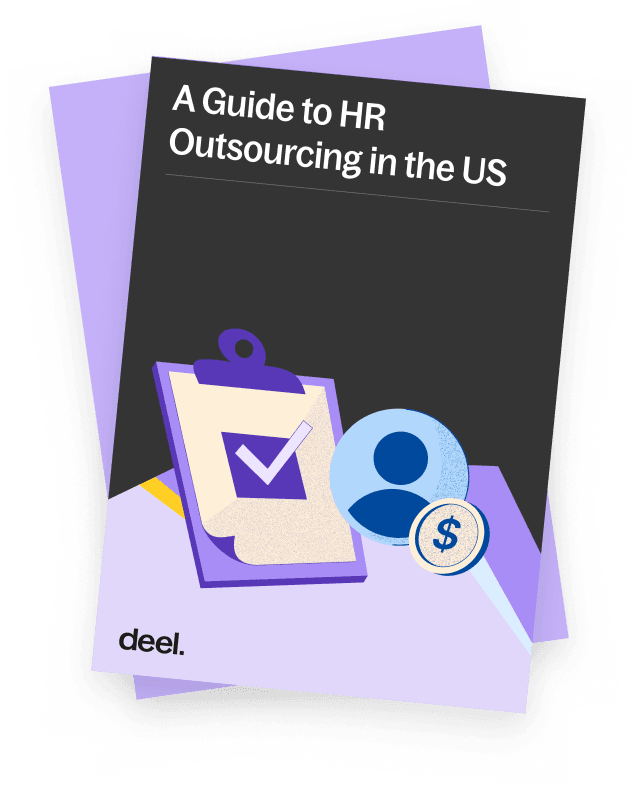Article
6 min read
What Missouri’s Paid Sick Leave Law (2025) Means for Employers
PEO
US payroll

Author
Dr Kristine Lennie
Last Update
September 09, 2025

Table of Contents
Understanding paid sick leave in Missouri
Which employers must provide paid sick leave?
Who isn’t covered?
Local ordinances to watch for
Recordkeeping and enforcement
Best practices for Missouri employers
Staying compliant without a statewide law
Key takeaways
- Missouri does not currently have a statewide paid sick leave requirement, following the repeal of Proposition A, which would have required employers to provide accrued sick leave starting May 2025, but it was repealed effective August 28, 2025.
- Employers must now rely on local ordinances or voluntary policies; many choose to offer paid sick leave to remain competitive and simplify compliance.
- Deel PEO takes sick leave tracking, recordkeeping, and compliance off your hands with automated workflows and expert support.
Missouri does not currently have a statewide paid sick leave requirement. Although voters approved Proposition A in 2024, which would have required employers to provide earned paid sick leave beginning in May 2025, the law was repealed before it could take effect. The repeal became official on August 28, 2025, leaving Missouri without a statewide mandate for paid sick time.
But what does this mean for employers? On one hand, there is no immediate obligation under state law. On the other hand, businesses may still face local ordinances in the future or choose to offer leave voluntarily to remain competitive, align with neighboring states, and simplify compliance.
Managing changing legislation can be challenging, especially for HR managers and finance leaders who oversee teams across multiple states with different labor laws. Deel’s all-in-one platform helps US companies navigate these complexities with in-house experts, automated compliance tools, and workflows designed to keep businesses confident and compliant.
Understanding paid sick leave in Missouri
In 2024, Missouri voters approved Proposition A, which created a framework for paid sick leave to begin in May 2025. However, before the law could take effect, it was repealed by state lawmakers, effective August 28, 2025.
That means as of now, employers in Missouri are not required under state law to offer employees paid sick time. Any sick leave benefits that workers receive are provided at the discretion of their employer or under a local ordinance.
Because many states have their own sick leave laws, multistate employers especially need to be cautious. Missouri may not currently mandate paid sick leave, but if you operate in other states, for example, Illinois or Colorado, you must comply with those rules.
Find out how paid sick leave laws differ by state.
Which employers must provide paid sick leave?
After August 28, 2025, when the repeal of Proposition A took effect, no private or public employers in Missouri are legally obligated to provide paid sick leave. The law applies equally across industries, meaning that whether you run a manufacturing plant, a retail business, or a professional services firm, there is no statutory requirement for sick leave.
However, sick leave remains a debated policy issue both locally and nationally, and there have been early discussions about new ballot initiatives that could attempt to reintroduce statewide leave mandates. Proactive monitoring ensures you’re not caught off guard if new obligations arise.
See also: Understanding Missouri’s Employment and Labor Laws

Who isn’t covered?
Since Missouri has no statewide mandate for paid sick leave after the repeal, employees are not guaranteed any sick leave under state law. Whether workers receive paid time off for illness depends entirely on either:
- Local ordinances, which may be passed at the city or county level
- Company-specific policies, which employers may adopt voluntarily
This means the scope of coverage varies widely from employer to employer.
See also: Comprehensive Guide to Payroll Taxes in Missouri
Local ordinances to watch for
Although Missouri law does not mandate paid sick leave statewide, individual cities may consider implementing their own ordinances. Large metropolitan areas such as St. Louis or Kansas City are the most likely candidates due to their worker-friendly policies.
If adopted, these ordinances could impose stricter rules than Proposition A originally outlined. For example, a city-level ordinance might require:
- Minimum accrual of sick leave hours
- Carryover of unused sick time into the next year
- More flexible notice and usage policies
For employers, the key is understanding that if a local ordinance exists, you must follow whichever rule is more generous to employees. That means if your company's sick leave policy allows 40 hours of sick leave annually but the city requires 56 hours, the city’s requirement prevails.
Given that these local rules could arrive at any time, businesses should maintain flexible policies and payroll systems that can adapt quickly if a new ordinance takes effect.

Free guide
A Beginner’s Guide to HR Outsourcing
Recordkeeping and enforcement
With the repeal of Proposition A, Missouri employers have no statewide obligations around recordkeeping or enforcement for paid sick leave. This simplifies compliance at the state level, but it does not eliminate the importance of good documentation.
Employers who voluntarily provide paid sick leave should still keep detailed records. These records support payroll accuracy, ensure employees know their balances, and provide transparency. Best practices include:
- Documenting accruals and usage in HR systems
- Displaying sick leave balances on employee pay stubs
- Retaining records of requests and approvals in case of disputes
For multistate employers, recordkeeping is mandatory in jurisdictions with paid sick leave laws. States with paid sick leave mandates often require detailed documentation for compliance purposes. If you operate in those jurisdictions, Missouri’s repeal does not exempt you from following the rules elsewhere.
Best practices for Missouri employers
Even though Missouri employers are not required to provide paid sick leave, many choose to do so voluntarily. Offering this benefit can improve recruitment and retention, particularly in a tight labor market where employees compare benefits across potential jobs. It also helps align your organization with the expectations of workers who may have experienced paid leave policies in other states.
Providing paid sick leave also reduces presenteeism, when employees come to work sick because they cannot afford to stay home. This has clear implications for productivity, workplace health, and employee morale. For companies that want to build a supportive culture, voluntary sick leave policies can be an effective tool.
Best practices for employers include:
- Clearly documenting sick leave policies in employee handbooks and onboarding materials
- Ensuring payroll systems are configured to track accrual and usage if sick leave is offered
- Benchmarking benefits against neighboring states like Illinois, Arkansas, and Kansas for consistency
By proactively setting up these structures, employers can avoid confusion, demonstrate commitment to employee well-being, and prepare for the possibility of future legislation.
See also: A Guide to PEO in Missouri
Explore PEO
Staying compliant without a statewide law
The absence of a statewide paid sick leave law does not mean employers can ignore compliance altogether. Businesses must continue monitoring for:
- New city-level rules.
- Future state ballot initiatives or legislation.
- Federal requirements like the Family and Medical Leave Act (FMLA) or the Americans with Disabilities Act (ADA) still apply to covered employers.
Regularly reviewing handbooks and leave policies is essential. Employers should ensure that policies remain consistent with both federal law and the requirements of any other states where they operate.
This is where Deel PEO offers critical support. As your PEO partner, Deel helps employers stay ahead with:
- Comprehensive sick leave support with accrual and usage tracking, documentation, carryover management, and reinstatement when employees return
- Fully in-house payroll, HR, tax, and compliance at the federal, state, and local levels, including state-specific sick leave mandates
- Guidance from certified professionals, licensed advisors, and dedicated HR business partners and Payroll Managers
- Exclusive Aetna International benefits plans for W-2 employees traveling abroad
- Access to 60+ domestic benefits plans with Fortune 500-level coverage
State-specific trainings, HR policies, and on-demand HR support - And more
With Deel PEO handling compliance in the background, employers can stay focused on running and growing their businesses with confidence.
Request a demo with Deel today and see how our platform keeps you compliant while supporting your team.
Disclaimer: The information on this page is subject to change or updates. Deel does not make any representations as to the completeness or accuracy of the information on this page.

FAQs
Are employers required to pay out PTO in Missouri?
Missouri law does not require employers to pay out unused paid time off (PTO), including sick leave, when an employee leaves the company. However, if an employer has a written policy or employment contract promising payout of unused time, that agreement must be honored. Employers should clearly state their PTO payout policies in handbooks and communicate them during onboarding.
What was the Missouri Earned Paid Sick Time (PST) law in Missouri?
The Earned Paid Sick Time law originated with Proposition A, which voters approved in 2024. It required employers with more than 15 employees to provide accrued sick leave, generally at a rate of one hour for every 30 hours worked, up to a certain cap. Sick time could be used for personal illness, caring for a family member, or dealing with issues related to public health emergencies. However, before the law could take effect in May 2025, it was repealed by the state legislature through House Bill 567, with the repeal effective August 28, 2025.
What is the final pay law in Missouri?
Under Missouri law, when employment ends, employers must issue a final paycheck by the next regular payday. The final pay must include all wages earned up to the termination date. However, as noted earlier, employers are not legally required to include unused PTO in the final paycheck unless company policy or an employment agreement specifies otherwise.

Dr Kristine Lennie holds a PhD in Mathematical Biology and loves learning, research and content creation. She had written academic, creative and industry-related content and enjoys exploring new topics and ideas. She is passionate about helping create a truly global workforce, where employers and employees are not limited by borders to achieve success.












